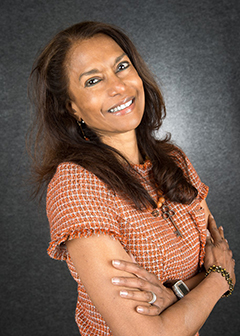Paths to the Top: Dr. Anula Jayasuriya, From Doctor to Investor

Dr. Anula Jayasuriya, an MD, PhD, and MBA from Harvard, is a leading venture capital executive focusing on investing in women’s health. Through EXXclaim Capital, a venture fund she founded in 2013, Dr. Jayasuriya focuses on investments that spotlight the biological and genetic differences between men and women and showcases how understanding those differences can transform healthcare innovation. She talked with WEN’s Chair, Tracy MacNeal, about her path to becoming an investor and what drew her to focus on women’s health.
What led you to develop your investment plan for changing the healthcare landscape?
When I learned that medical schools were teaching that heart attacks were primarily a male disease, and that the average patient was a 70kg white male, I was shocked because, as a result of this bias, cardiac risk was underrecognized, under-studied in women, and most importantly, undertreated in women. Most people do not know that heart attacks are the number one killer of women—largely because women’s heart attacks are misdiagnosed and untreated, and hence preventable. When I began talking about this unconscious bias, very few physicians were aware or sadly, interested. There was a widely accepted consensus that women’s health was a pressing unmet need in the developing world, but that the U.S. and Europe were fine. When we look at the data, we see that this is not the case. For example, Type II diabetes is equally prevalent in men and women, yet women have a 3X higher cardiovascular risk. I view this unconscious bias as an oversight. I don’t think it was done with malintent; but it does prevent women from getting the best possible healthcare.
What inspired you to go from being a doctor to an investor?
I wanted to be on the entrepreneurial and business side, shepherding innovations into the hands of patients. When I was starting out, I went to several companies to try and get on their business operations, but they all wanted to offer me clinical positions. So, I went to Harvard Business School for my MBA, which enabled me get business “cred” and transition into investing. In 2013, I began seeing the opportunity in women’s health. Historically, entrepreneurs and investors were and are still predominantly male. Today, only 7% of decision makers in venture capital are women, meaning that women’s health issues do not resonate as strongly with 93% of the investor segment. I am working diligently towards changing this.
What milestones do you see as possible to achieve in women’s healthcare in the next decade?
The ultimate goal is to make women’s health mainstream, but to get there, we need to look at steps different stakeholders need to take. Here’s what I envision:
- For women: Increasing their awareness that their health is not as well served as it could be, and advocating for improving their own care, commensurate with the underlying science.
- For physicians/health care providers: Understanding and accepting the differences between sexes genders in care delivery – including medical education and accreditation testing.
- For academia/researchers: Researching and demonstrating the relevance of sex and gender differences in delivering precise medical care.
- For investors/entrepreneurs: Funding innovation in women’s health and demonstrating attractive exits via M&A/IPOs in women’s health.
- For industry/business/payors: Including innovations that focus on improving women’s health; increasing M&A activity in women’s health.
- For government and regulators: Incentivizing innovation in women’s health and increasing grants to fund research.
Medtech POV Podcast
Subscribe to Medtech POV with Scott Whitaker, a podcast covering the intersection of medtech and policy from every perspective.